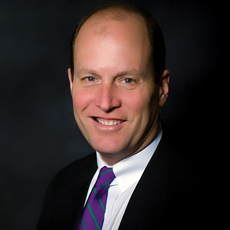
Long-term care and senior living providers, like all responsible businesses, spend an inordinate amount of time developing meaningful strategies. Particularly in the long-term care setting, organizations clearly understand their true mission and they are careful to integrate that mission in their strategic plans. A case can be made however, that execution of a strategy is even more critical than the strategy itself. A mediocre strategic plan, well executed, has a reasonably good chance of success. A great strategy, poorly executed, will fail. But what drives an organization’s ability to execute is routinely neglected.
Peter Drucker is often credited with the phrase, “culture eats strategy for breakfast.” Culture may actually have a bigger influence on the execution of strategies than it does on the development of strategies.
Over the past few years, the Lutheran Home & Harwood Place have developed and leveraged a cultural philosophy that has transformed the organization, resulting in a compelling difference in both how staff interact with each other and with residents and clients. A word that you have likely never heard before could be the key to helping improve the senior living experience in your organization. That word is “chalance” – a concept which counters the more negative term of ‘nonchalance’ or indifference.
Chalance is not a word found in the dictionary. How can we have ‘nonchalance’ so deeply entrenched in our vocabulary yet not counterbalance that atrocious word with a more positive antonym? Chalance is caring in a way that delights everyone you touch. It’s a bias for action that puts people first and it is communicating through our words and actions. ‘I hear you. I see you. I understand your needs, and I am going to address it with diligence and enthusiasm.’ It is caring enough to project how others want to be treated and then treating others in that manner.
Senior healthcare consists of a complex, interconnected system of processes that have been built and layered with additional requirements over time so it is crucial to focus on building a strong dialog with residents and short-term rehab patients.
In fact, improving communications between patients and healthcare staff is the number one factor in improving patient experience, according to a new poll from ASQ, the world’s largest network of quality resources and experts.
Chalance can take many forms but the abundance of opportunities involves the “little things.” An act of chalance could be as simple as helping a family member carry some bulky packages into the building for their loved one. It could involve sneaking out of your office at lunch time to buy a few oranges for a resident who is craving one. It could be as simple as returning a voicemail message to an employee in a timely manner, even on a particularly busy day. Chalance is about recognizing what others need – not what you need – and acting on that need in and enthusiastic and caring manner.
ASQ experts surveyed also ranked employee engagement programs and leadership development as having the greatest potential in helping health care organizations to improve the patient experience.
It is true that training and engaging strong leaders has never been more important as U.S. senior facilities face unprecedented challenges and opportunities via the ever changing landscape of healthcare reform. Long-term care in particular is facing a rapidly increasing risk of litigation as attorneys are relentlessly targeting the industry, even for relatively minor incidents.
At the Lutheran Home & Harwood Place, we take every opportunity we get to discuss our desire to build a culture of chalance. We invest in our leaders by systematically providing emotional intelligence coaching and we are currently in the midst of developing a robust leadership academy. We put tremendous effort into hiring great and enthusiastic employees. The one non-negotiable requirement for every new employee is that they smile. We want to hire “chalant” individuals and then help them further develop that trait.
What may have started as a play on words is now an axiom that the Lutheran Home & Harwood Place live by, an affirmation for the team’s leadership and employees. It has become culture at our facility and perhaps could make a difference in yours.
Scott McFadden is president and chief executive officer of the Lutheran Home and Harwood Place, two Wauwatosa, Wisconsin facilities that offer a full spectrum of healthcare and other services for older adults.




